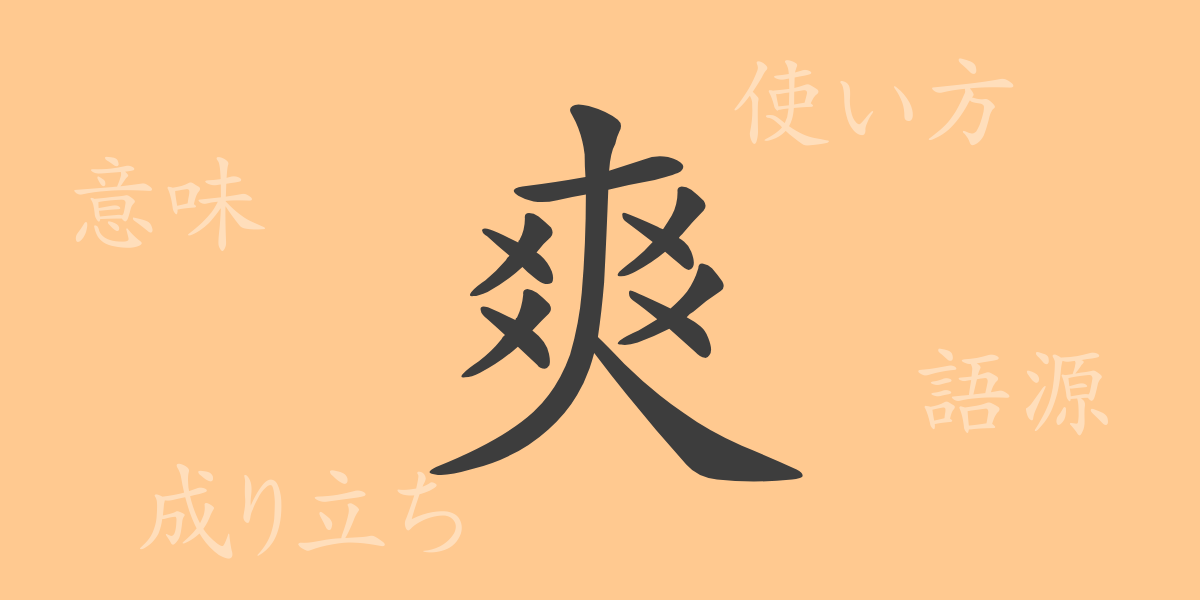In the rich tapestry of Japanese language and culture, Kanji symbols offer depth and beauty. ‘爽’ (ソウ – Sou) is one such frequently used Kanji that evokes a sense of comfort and refreshment. This article delves into the Kanji ‘爽’, exploring its origins, meanings, usage, and how it integrates into idioms and proverbs, enriching its allure.
Origins of 爽 (ソウ – Sou)
The Kanji ‘爽’ originated from ancient Chinese pictographs, initially depicted as the sun rising, symbolizing a refreshing morning. Over time, this evolved to represent feelings of a fresh breeze and refreshing mornings, establishing itself as a symbol for freshness and pleasant feelings. It aptly captures moments of natural beauty and human emotions that refresh the spirit.
Meaning and Usage of 爽 (ソウ – Sou)
‘爽’ is used to describe sensations and states that are refreshing or pleasant, such as ‘refreshing’, ‘clear’, and ‘invigorating’. In Japan, where the changing seasons keenly influence life, the refreshing and crisp qualities of ‘爽’ resonate deeply with the Japanese sensibility.
Pronunciation, Stroke Count, and Radical of 爽 (ソウ – Sou)
The Kanji ‘爽’ not only carries aesthetic and symbolic significance but is also popular in names and corporate logos due to its beauty and meaning.
- Reading: On’yomi ‘ソウ’ (Sou), Kun’yomi ‘さわ.やか’ (sawayaka), ‘あき.らか’ (akiraka)
- Stroke count: ‘爽’ consists of 11 strokes.
- Radical: The radical of ‘爽’ is ‘爻’ (こうへん – kouhen).
Phrases and Proverbs Using 爽 (ソウ – Sou)
The Kanji ‘爽’ is featured in many idioms and proverbs that reflect its refreshing and invigorating qualities:
- 爽快 (そうかい – Soukai): Feeling refreshed or invigorated.
- 爽朗 (そうろう – Sourou): Being open-hearted and cheerful.
- 清爽 (せいそう – Seisou): Being clean and fresh.
- 朝爽 (ちょうそう – Chousou): Feeling refreshed early in the morning.
These terms are frequently used in Japanese to describe people’s personalities or the state of the environment.
Summary on 爽 (ソウ – Sou)
The Kanji ‘爽’ is perfectly suited to depict refreshing scenes and sensations. In Japanese, it is often used to describe the beauty of nature or the emotions of people, appearing in many expressions and idioms. Even a single character like ‘爽’ can showcase the richness and breadth of the Japanese language.

























